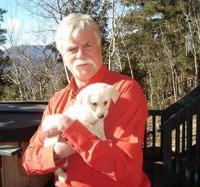- Posts: 6393
- Thank you received: 18
Science Odds and Ends
- LOL
-

- Mountain Legend
-

Science Chic wrote: ...Temperature will be a factor in how quickly emissions particles move, but that data will be captured by the sensor, plus I'm sure they correlate their data with temperature at time of reading.
In case you missed it in my previous post, here's a paper on it:
SC, I did read the paper. The technology is pretty advanced. The instruments are laser based and the stuff was developed by NASA. There are still alot of variables and I did not see any accuracy data in the paper. (Compare drive-by with a lab/dyno test). But overall it sounds like they are doing it in a reasonable fashion, two passes and you get a sticker. If you fail, you just do the normal drive thru, so it can save people time if they pass.
http://cires.colorado.edu/~jjose/Papers ... _JAWMA.pdf...When we compared the
NO emissions for 117 vehicles measured more than one time,
about half of the high NO emitters were found to be very consistent,
while the other half varied significantly.
If you want to be, press one. If you want not to be, press 2
Republicans are red, democrats are blue, neither of them, gives a flip about you.
Please Log in or Create an account to join the conversation.
- ScienceChic
-
 Topic Author
Topic Author
- Mountain Champion
-

- Posts: 15746
- Thank you received: 320
World Changing Ideas
Ten thoughts, trends and technologies that have the power to transform our lives
By The Editors, John Pavlus, Tom Vanderbilt, Elizabeth Svoboda, Melinda Wenner Moyer and Matthew L. Wald
November 18, 2010
"Now, more than ever, the illusions of division threaten our very existence. We all know the truth: more connects us than separates us. But in times of crisis the wise build bridges, while the foolish build barriers. We must find a way to look after one another as if we were one single tribe.” -King T'Challa, Black Panther
The truth is incontrovertible. Malice may attack it. ignorance may deride it, but in the end, there it is. ~Winston Churchill
Please Log in or Create an account to join the conversation.
- ScienceChic
-
 Topic Author
Topic Author
- Mountain Champion
-

- Posts: 15746
- Thank you received: 320
Amazon's Best Books of 2010: Top 10 Science Books
What would you add?
"Now, more than ever, the illusions of division threaten our very existence. We all know the truth: more connects us than separates us. But in times of crisis the wise build bridges, while the foolish build barriers. We must find a way to look after one another as if we were one single tribe.” -King T'Challa, Black Panther
The truth is incontrovertible. Malice may attack it. ignorance may deride it, but in the end, there it is. ~Winston Churchill
Please Log in or Create an account to join the conversation.
- LOL
-

- Mountain Legend
-

- Posts: 6393
- Thank you received: 18
Science Chic wrote: www.scientificamerican.com/article.cfm?i...ideas-dec10&offset=8
World Changing Ideas
Ten thoughts, trends and technologies that have the power to transform our lives
By The Editors, John Pavlus, Tom Vanderbilt, Elizabeth Svoboda, Melinda Wenner Moyer and Matthew L. Wald
November 18, 2010
* Our annual compilation picks 10 innovations that could change the way you live.
* They are: gamelike reality; human number crunchers; smart pricing of toll roads; DNA transistors; biomimicking computer algorithms; inexpensive, mobile water filters; a biomass-gobbling machine that produces electricity; affordable diagnostic tests for genetic diseases; gas from trash; and the new appreciation for "junk" DNA.
SC, its only a summary, looks like you have to subscribe to read the article.
I would pick either a cost effective break-through in treating cancer or a cost effective clean energy solution.
If you want to be, press one. If you want not to be, press 2
Republicans are red, democrats are blue, neither of them, gives a flip about you.
Please Log in or Create an account to join the conversation.
- ScienceChic
-
 Topic Author
Topic Author
- Mountain Champion
-

- Posts: 15746
- Thank you received: 320
Here are the 10 (teaser!):
The Game of Life
Bringing joysticks and scoreboards into our daily routine may be the key to making us better people
by John Pavlus
Human Number Crunchers
When research is like a video game, computers finish second
by John Pavlus
Know-It-All Toll Roads
Building more roads won’t eliminate traffic. Smart pricing will
by Tom Vanderbilt
The DNA Transistor
A new approach to DNA sequencing could revolutionize our understanding
of genetics
by Elizabeth Svoboda
A Killer Water Filter
Novel materials promise better access to clean water around the world
by Melinda Wenner Moyer
A Wandering, Plant-Eating Robot
It gobbles up wood chips, leaves and other “biomass” and generates electricity
by John Pavlus
Borrowing Nature’s Code
Algorithms inspired by Mother Nature help us run our vast digital biosphere
by John Pavlus
One Hundred Tests
A cheap diagnostic warns couples against passing rare genetic diseases to their offspring
by Mary Carmichael
Gas from Trash
Modified microbes eat waste and “secrete” fuel
by Matthew L. Wald
The Importance of Junk DNA
Biologists continue to be surprised by what was once dismissed as wasted space
by Melinda Wenner Moyer
"Now, more than ever, the illusions of division threaten our very existence. We all know the truth: more connects us than separates us. But in times of crisis the wise build bridges, while the foolish build barriers. We must find a way to look after one another as if we were one single tribe.” -King T'Challa, Black Panther
The truth is incontrovertible. Malice may attack it. ignorance may deride it, but in the end, there it is. ~Winston Churchill
Please Log in or Create an account to join the conversation.
- TPP
-

- User is blocked
-

- Posts: 4760
- Thank you received: 0
Science Chic wrote: www.amazon.com/gp/feature.html/ref=pe_63...p=1&docId=1000628161
Amazon's Best Books of 2010: Top 10 Science Books
What would you add?
The Best American Science and Nature Writing 2008
Jerome Groopman, MD. Editor
http://en.wikipedia.org/wiki/The_Best_American_Science_and_Nature_Writing
Zen and the Art of Motorcycle Maintenance
Robert M. Pirsig
http://en.wikipedia.org/wiki/Zen_and_the_Art_of_Motorcycle_Maintenance
Please Log in or Create an account to join the conversation.
- bailey bud
-

- Mountain Legend
-

- Posts: 1849
- Thank you received: 0
I'm not really a nature freak - but I do enjoy it for what it is -- and this title sets the standard for Nature writers.
The Double Helix: A Personal Account of the Discovery of the Structure of DNA
A lay-person friendly documentary of the discovery of DNA.
State of Fear (Michael Crichton)
Sci-fi writer Michael Crichton uses the power of the pen to advance his own view of global warming.
Guns, Germs, and Steel Jared Diamond asks some questions that most of us would rather skip.
Einstein, Picasso
Arthur Miller identifies (scary) similarities between two of History's biggest game changers.
Please Log in or Create an account to join the conversation.
- ScienceChic
-
 Topic Author
Topic Author
- Mountain Champion
-

- Posts: 15746
- Thank you received: 320
A Greener Way to Make Plastic
by Robert F. Service on 25 November 2010
http://news.sciencemag.org/scienceinsid ... tml?ref=hpChemical refineries are great at converting petroleum into gasoline and the building blocks of plastics and other consumer goods. But when it comes to sustainable starting materials, such as wood chips, corn stalks, or other plant "biomass," refineries are too inefficient to make the process commercially viable. Researchers have now given that efficiency a major boost, perhaps enough of one to allow us to leave petroleum behind.
A third route, known as pyrolysis, heats dried and ground biomass to about 550˚C in an oxygen-depleted chamber (so the biomass doesn't burn), producing a mixture of gases, liquids, and a gray, carbon-rich solid called coke. When the gases cool and condense, they combine with the liquids to form a mixture of oils. These oils are cheap: It costs only $1 to make oil through pyrolysis that has the same energy content as a gallon of gasoline. But they must be further chopped into smaller hydrocarbons before they are suitable for industrial use. In addition, oxygen-rich acids in the oil make it corrosive, so it can't be used in conventional engines and storage containers.
How BP Clashed and Cooperated With Scientists
by Eli Kintisch on 22 November 2010
http://news.sciencemag.org/sciencenow/2 ... tml?ref=hpA detail-rich, 39-page working paper http://www.oilspillcommission.gov/docum ... condo-well from staff members of the oil spill commission says the government and BP have "much to take pride in" for their response to the crisis, given that "neither was ready for a disaster of this nature." It says, however, that the failure to get an accurate rate of oil flow early on may have "impeded" BP's efforts to have oil-collection equipment ready when needed.
A senior government official characterized BP's attitude prior to the increased supervision as "hope for the best, plan for the best, expect the best." One of the science advisors told Commission staff that, before the science team stepped up its oversight, BP had failed to consistently consider worst-case scenarios. Tooms of BP, on the other hand, expressed frustration to Commission staff about the nature of the science team's pushback, arguing that theoretical scientists consider risk differently than engineers, that BP had expertise in managing risk, and that the science team slowed the containment effort.
The commission staff members' final word on the role of the government:
At the time of the blowout, the government was unprepared to oversee a deepwater source control effort … to provide meaningful supervision, the government needs access to sufficient expertise in deepwater drilling and containment—through the Department of the Interior, the national labs, outside scientists, or otherwise. Thus, the Commission may wish to recommend that the government develop and maintain additional in-house expertise in petroleum engineering, as well as formalize procedures to make the best use of outside industry experts during an incident.
ScienceShot: Daylight Savings Hurts Test Scores
by Nathan Collins on 22 November 2010
http://news.sciencemag.org/sciencenow/2 ... tml?ref=hpFor decades, scientists have debated whether spring and fall time changes affect everything from seasonal affective disorder to traffic accidents. The idea is that resetting clocks by "springing forward" and "falling back" can upset sleep patterns and with them the ability to concentrate. Now, it appears that these time changes might just muck up performance on the SAT, the U.S. college admissions exam, which is administered five times a year, including two dates that fall after daylight savings transitions. Using data from Indiana, where until recently individual counties could opt in or out of daylight savings, researchers found that scores in counties that changed their clocks were consistently 16.34 points—or 2%—lower than in counties that did not, they report online this month in the Journal of Neuroscience, Psychology, and Economics. That may not sound like a lot, but it may be enough to keep you out of Harvard. So choose your test dates carefully, kids.
Your Blood Holds Clues to Your Birthday
by Jennifer Carpenter on 22 November 2010
researchers report online today in Current Biology that they can estimate someone's age—give or take about a decade—simply by analyzing a drop of blood. If validated, the new forensic technique could revive police investigations that have hit a dead end. The blood-age test relies on a peculiarity of T cells, immune cells that recognize and fight microbial invaders. As a T cell develops, it cuts up some of its DNA and splices some of it back together in various combinations; that helps it generate unique cell-surface receptors that can recognize a wide variety of bacteria or other pathogens. Any leftover DNA forms a circle that is useless to the T cell.
Researchers can quantify how many circles exist in the blood, says Manfred Kayser, a forensic molecular biologist at Erasmus University Medical Centre in Rotterdam. He and his colleagues have found that the amount declines with age because the body produces fewer and fewer new T cells as people get older.
"Now, more than ever, the illusions of division threaten our very existence. We all know the truth: more connects us than separates us. But in times of crisis the wise build bridges, while the foolish build barriers. We must find a way to look after one another as if we were one single tribe.” -King T'Challa, Black Panther
The truth is incontrovertible. Malice may attack it. ignorance may deride it, but in the end, there it is. ~Winston Churchill
Please Log in or Create an account to join the conversation.
- ScienceChic
-
 Topic Author
Topic Author
- Mountain Champion
-

- Posts: 15746
- Thank you received: 320
The Transforming Principle by Maclyn McCarty (goes well with The Double Helix - this is the first-hand account of the discovery that DNA was the inheritable material, not protein)
Chaos: Making a New Science by James Gleick
The Selfish Gene by Richard Dawkins
Ever Since Darwin: Reflections in Natural History by Stephen J. Gould
"Now, more than ever, the illusions of division threaten our very existence. We all know the truth: more connects us than separates us. But in times of crisis the wise build bridges, while the foolish build barriers. We must find a way to look after one another as if we were one single tribe.” -King T'Challa, Black Panther
The truth is incontrovertible. Malice may attack it. ignorance may deride it, but in the end, there it is. ~Winston Churchill
Please Log in or Create an account to join the conversation.
- Grady
-

- Mountain Legend
-

- Posts: 2915
- Thank you received: 3
http://apnews.myway.com/article/20101129/D9JPOQ780.htmlb]Scientists trick cells into switching identities[/b]
NEW YORK (AP) - Suppose you could repair tissue damaged by a heart attack by magically turning other cells into heart muscle, so the organ could pump effectively again.
Scientists aren't quite ready to do that. But they are reporting early success at transforming one kind of specialized cell directly into another kind, a feat of biological alchemy that doctors may one day perform inside a patient's body.
The process doesn't use embryonic stem cells. Personally I think this is just a peek inside the door, I can envision growing entire new organs to replace failing ones. I saw another piece the other day where adult stem cells were used to replenish knee cartilage, I can’t wait for that one to become a common procedure.
Please Log in or Create an account to join the conversation.





